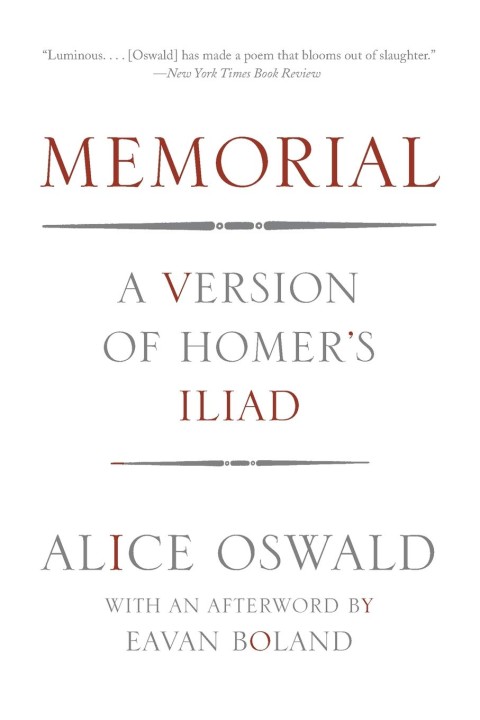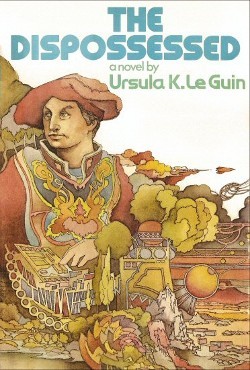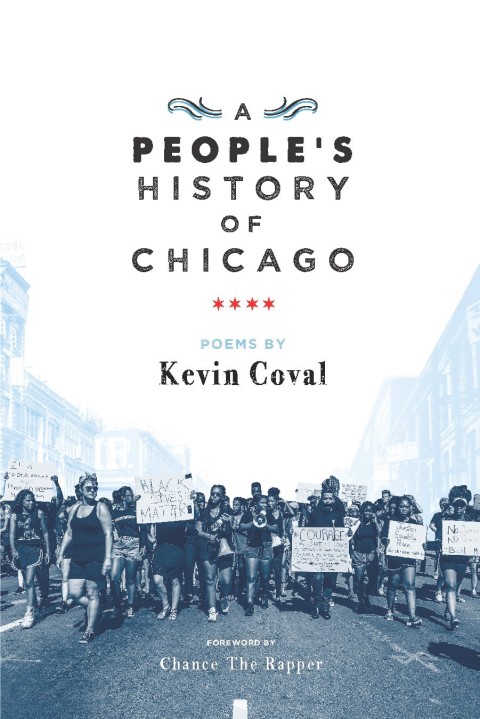New to the Humanities Core sequences this year was a series of summer reading texts designed to provide incoming students with a common reading experience before they even set foot on campus. Professors from each of the HUM Core sequences described their choice of text and why it was a perfect fit for their course:
Greece and Rome, College Asst. Prof. Katie Kadue - Memorial by Alice Oswald

“It's a contemporary ‘transformation’ of an ancient text that invites us to think of the difference between translation and transformation (she calls it a "version" of The Iliad), so it starts students thinking about an important theme in the course. And students always have a lot of questions about translation when we start reading Homer...It sets up a big question that students always have about The Iliad, which is whether all the death scenes work to glorify war, to critique its brutality, or both. I've assigned excerpts of Memorial alongside The Iliad every year and the students always get into a lively debate about whether the laundry list of deaths dehumanizes the characters or whether memorializing deaths, and only deaths, is the best way of celebrating men as heroes.”
Human Being and Citizen, Sr. Lect. Samantha Fenno - The Dispossessed by Ursula K. LeGuin

“Like much science fiction, Ursula LeGuin’s The Dispossessed (1974) is engaged in a creative act of world-making. The novel may be understood as a literary thought experiment. In the fall quarter of HBC, we work hard to think with ancient texts about matters of mutual concern—about, e.g., justice, love, government, citizenship, belonging, and law. Like the best science fiction, such work can help us to get unstuck from how we habitually understand ourselves and one another. In reading and discussing Homer’s Iliad, the book of Genesis, parts of Plato’s Republic and Sophocles’ Antigone, we (students and professors in the course) are called upon to step back from, and to reassess, our views concerning, e.g., the relation between law and justice. Reflection of this sort—be it engendered by great works of the past or by great science fiction—bears just as much on our thinking about our present political situation as on the situations of real people in the distant past or imagined ones in the future.”
Language and the Human, Prof. Alan Yu - Citizen: An American Lyric by Claudia Rankine

“Citizen is a book that seems particularly appropriate for the times, given the intense conversation our society is having regarding racism and other forms of (micro)aggression. Rankine’s text is preoccupied with the contentiousness of our verbal and non-verbal interactions, and with the force with which they enter and define our lives and our personal and collective relations. It is an excellent text with which and through which to enter a collective conversation about how language shapes our experience, understanding, and expression of being human.”
Media Aesthetics, Assoc. Prof. Benjamin Morgan – 1919 by Eve Ewing

“Media Aesthetics instructors were enthusiastic about the prospect of sharing Professor Ewing’s poetry collection with students in part because of Ewing’s innovative juxtaposition of sociological writing, poetry, and photography. The multiple media included in 1919 invite readers to reflect on how language communicates differently when it takes on a self-consciously aesthetic dimension, and, more broadly, about how we have an indirect, mediated relationship with the past. Our hope is that Ewing’s compelling combination of media will lead students to explore how we communicate the history of race relations in Chicago, and how and why certain aspects of the past become more or less central to the story of a place.”
Philosophical Perspectives, Assoc. Prof. David Finkelstein – The Dispossessed by Ursula K. LeGuin
“We all wanted our recommendation to resonate in some significant way with the philosophical works that we would be asking students to read in Philosophical Perspectives….Works of science fiction are akin to philosophical texts insofar as they ask us to step back from, and to wonder about, features of our lives that are ordinarily so taken for granted by us as to be, in a way, invisible. Ursula LeGuin described her own books as ‘thought experiments’ whose aim was—not to predict the future, but—to help us see features of our present reality. Once we were thinking in terms of recommending a work of science fiction, it turned out that LeGuin’s books were favorites of quite a number of us.”
Poetry and the Human, Asst. Prof. Benjamin Saltzman - A People's History of Chicago by Kevin Coval

“When Chris Wild (Master of the Humanities Collegiate Division) asked us to come up with a book for incoming students to read over the summer, Kevin Coval's A People's History of Chicago immediately jumped to mind. Not only is it a powerful collection of poems, which would give students a taste of contemporary poetry in anticipation of their work in Poetry and the Human, but it also is at once extraordinarily timely—illuminating the Black Lives Matter movement, for instance—and a potent history of the city where our new students will eventually reside for the next four years. I couldn’t imagine a more perfectly challenging introduction to Poetry and the Human or to the humanities at University of Chicago or even to the City of Chicago, especially at a time when many students may not be able to be here in person.”
Reading Cultures, Assoc. Prof. Zach Samalin - 1919 by Eve Ewing
“We chose Eve Ewing’s 1919 for a couple of reasons, but most of all we wanted to give incoming students in Reading Cultures an introduction to Chicago that would help them to understand the long history of racial violence in this city. Most of the books we read in this sequence are meant to get students thinking about the historical legacies of the slavery, empire and capitalist exploitation, in a global sense (for example, Jamaica Kincaid’s A Small Place) as well as a local one (Richard Wright’s Native Son). We thought that 1919 would offer an important complement to these texts, especially during the present moment, when many Chicagoans are rising up against police violence. We hope that reading 1919 over the summer will give students a different kind of orientation to the city and the university alike.”
Readings in World Literature, Assoc. Prof. Sascha Ebeling - The Decameron by Giovanni Boccaccio

“One of the reasons why we have a core sequence called ‘Readings in World Literature’ is that we believe that literature—telling stories, writing a poem, etc.—is a fundamental human practice, something perhaps as essential as eating. In reading literature from around the globe and from different times, we study that fundamental human practice and we study how people have written about their lives and the problems they encounter. The Decameron, by the 14th-century Italian author Giovanni Boccaccio, is a collection of stories that a group of people told each other while ‘sheltering in place,’ as we would say now, in a country house outside of Florence to escape an outbreak of the plague. So perhaps by looking at this text now we can learn something about how people have historically responded to pandemics.”